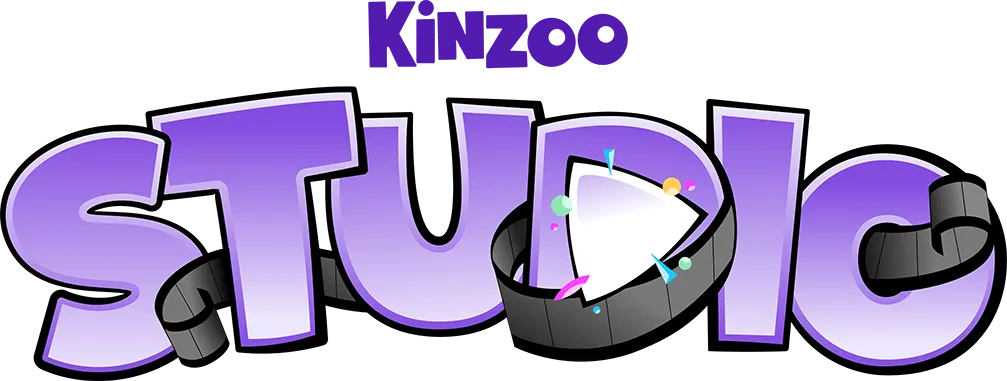In Conversation with Joel Silk
Dad and Senior Director of Moderation at Roblox
For the uninitiated, Roblox is an online gaming platform that allows users to program their own games, and play games programmed by other users. Its massive popularity among kids and teens has only grown over the course of the past few years, with over 100 million downloads on the Google Play store as of October 2021.
Before building out the Content Moderation team at Roblox, Joel Silk spent 20 years as an Air Force Intelligence Officer. “I came out of that with a skill-set that ended up transferring really well to the Trust & Safety mission,” says Joel.
It’s a skill-set that includes rooting out bad actors in online communities—something that’s useful at Roblox. As a kid-oriented platform hosting user-generated content, Roblox keeps user safety top of mind. According to Joel, his job boils down to “keeping the bad stuff off the platform” so kids—and parents—can enjoy greater peace of mind while exploring. We sat down with Joel to talk about online safety and learn how parents can help keep children safe when they use technology.
What are some of the biggest changes you’ve seen in the industry since you started?
Like every other online platform, we have just exploded in the last year or so.
One thing that I have noticed is that the Trust and Safety world is becoming more and more interconnected—and for good reason. Customers have so many more options now. If I want to be on social media, I have several different places I can go. That means I’m going to choose the platform that best fits my safety, security and privacy concerns. We’re starting to see folks make decisions based on that more and more, and that has led to much more collaboration and cooperation across the industry.
One of the things I appreciate the most at Roblox specifically is that Trust & Safety is paramount. Because content on our site is user-generated, we’ve worked to ensure product owners share safety responsibility for their products. Now, our product managers and engineers come to the Trust and Safety team early in the development process and we work together. More than anything over the last year and a half, that has driven positive change on the platform and improvement in the company. It’s pushed the safety discussion so much further.
How can parents tell if an online environment is safe for kids?
At Roblox, we partner with third-party organizations that review websites and apps to evaluate their safety and appropriateness for younger users. . That’s probably the easiest piece to look for as a parent when deciding whether a site or platform is safe for your kids. We believe that providing a safe platform is our responsibility, but we recognize that every parent is going to want to make their own decisions for their family.
It’s not enough to just click on the privacy agreement and the terms of service. Parents need to be involved.
What responsibility do platforms have to create safe tools for children?
That depends on the platform. Platforms designed for adults tend to place more of that responsibility on the users themselves. On platforms where a large portion of the demographic is younger users, the responsibility falls more to the company or platform. At Roblox, we take a lot of ownership in safety, including account verification and verified parental consent.
I don’t know if we’ll ever get to a point where platforms own the sole responsibility for deciding what their users should or shouldn’t see, because parents should make those decisions for themselves. The platform’s responsibility is to make those choices available and easy for parents. No matter how safe you make a platform, parents still need to know and understand what’s happening and what their kids are doing. With my kids, I want to know what they’re doing—and not just to make sure that it’s safe. I want to know what they’re interested in. I want to see the world through their eyes and see what they like and dislike, and how they experience the world.
Since COVID, we’ve seen a big shift in the way that families and kids are interacting with technology. Do you foresee the conversation around screen time changing?
I think the metaverse is here. That’s not going to change. I think the conversation, however, will shift from ‘how much screen time is too much?’ to ‘what kinds of screen time is best at what age?’ Especially in COVID times, these digital co-experiences are such a lifeline. We get notes from parents all the time saying, “My kid has really suffered in this COVID isolation. Thank goodness your platform is here to help them stay connected with their friends and family.” We take it for granted, but social interaction is a skill that people need to develop, especially younger folks.
What are the biggest concerns parents should be aware of when their kids go online?
Online platforms, especially platforms where content is user-generated, are a reflection of society. So any problem that exists in society will exist on that social platform. You need to be aware of those things and teach your kids not to talk to strangers in the same way you would in the real world. It’s not a separate conversation anymore. The lines between real life and digital life are eroding; digital safety just needs to be part of every safety conversation.
I will also tell you, as a former Intelligence Officer, it’s not difficult to put together little snippets of information across many months or years. People don’t realize that when they make a social media post. Maybe you’re going to post a picture of your kid’s birthday party on the front lawn with the caption “I can’t believe Penelope turned seven today!” Well, bad actors can look at when you posted that, and know your kid’s name and exact birth date. Was your house number in the background of that picture? Can someone tell where you live now, too? Compounding little bits of information is so easy to do and happens all the time. It’s significantly more dangerous than you might think. People are making themselves more vulnerable than they realize.
What can parents do to help their kids thrive online?
Be involved. Have discussions and get interested in what your kids are interested in. If your kid wants to play soccer, you’re going to take them to practice and watch their games…maybe even coach the team. Whatever your kid is into online, the same kind of things should happen.
Having frank conversations with your kids about what they’re doing online is important so that if and when something happens that makes them uncomfortable, they know they can come to you. That kind of openness doesn’t happen automatically. It’s important to be involved and lay a good foundation early on.
I think it’s also important not to assume that all screen time is bad. The learning, sharing, growth and interpersonal communication that can happen in this new era of the metaverse is so enriching and powerful.
Are there any common misconceptions you hear from parents about kids and technology?
I think this has become more commonly known recently, but the account that your kid shows you is probably not their only account.
Why do kids go online?
Kids go online for social interaction. For example, with Roblox, they’re there because the games are fun, sure, but more than that they’re there to play with friends. We’ve seen an increase in what we would call “hangout spaces,” where there’s no actual gameplay, but it’s a place to go in digital form and just be with other people. The social aspect is what they’re most excited about—especially in COVID times.
How can we make the internet a better place for kids?
I think most kids know that the internet can be a dangerous place. As a society, we’ve said that enough times that they understand that.
I think we have a ways to go in establishing social norms for different digital platforms. In the real world, you know that the behavior you can engage in on the playground is going to be different than what you would do in the library or at the bank. We need to work on establishing those same boundaries online.
Almost 70% of nine- to twelve-year-olds in the US are on Roblox. For many of them—probably most of them—this is their first real foray into an online community. So we see this as a tremendous responsibility. To establish not only the norms for our specific platform, but also to lay a foundation for these kids, and say “this is what’s okay online. This is what’s not okay.”
That’s one of the things I get most excited about, doing this work. In ten years, the internet could be a much better place, if we help kids set these standards now. When my kids are teenagers online, I want them to feel safe and comfortable, to know what crosses a line and what doesn’t.
What inspires you about the way you see kids Roblox?
I think the coolest thing to see is when kids start out playing games on our site and then transition to developing their own. With Roblox, you’re playing games created by fellow users, so it’s easier to make that leap. You think, “Hey, all of these experiences that I love are created by users like me, I’ll create one myself.” Kids can learn so much trying to make a game. There’s coding and computer science, but then there’s also user experience and marketing, getting people to play. We have some young developers that now lead teams and have employees. It’s a really diverse set of skills.
It’s always surprising to me how intuitive kids are. Your average seven-year-old can grasp the basic concepts of computer science far better than I ever did. It’s almost like learning English to them. It’s becoming part of the core curriculum, part of their understanding of the world.
If you’d like to learn more about Roblox, check out their page for Parents. You’ll find more information on how they build safety into the platform!



























